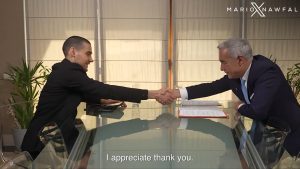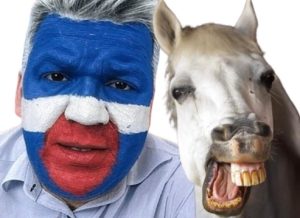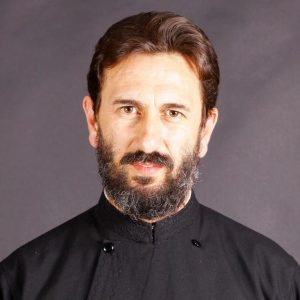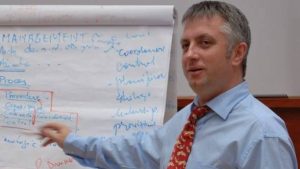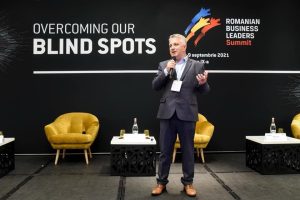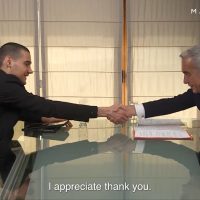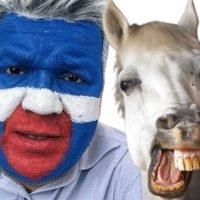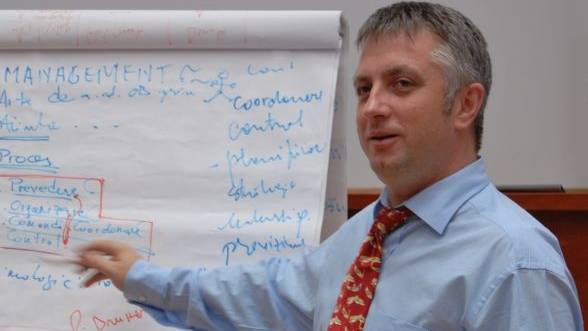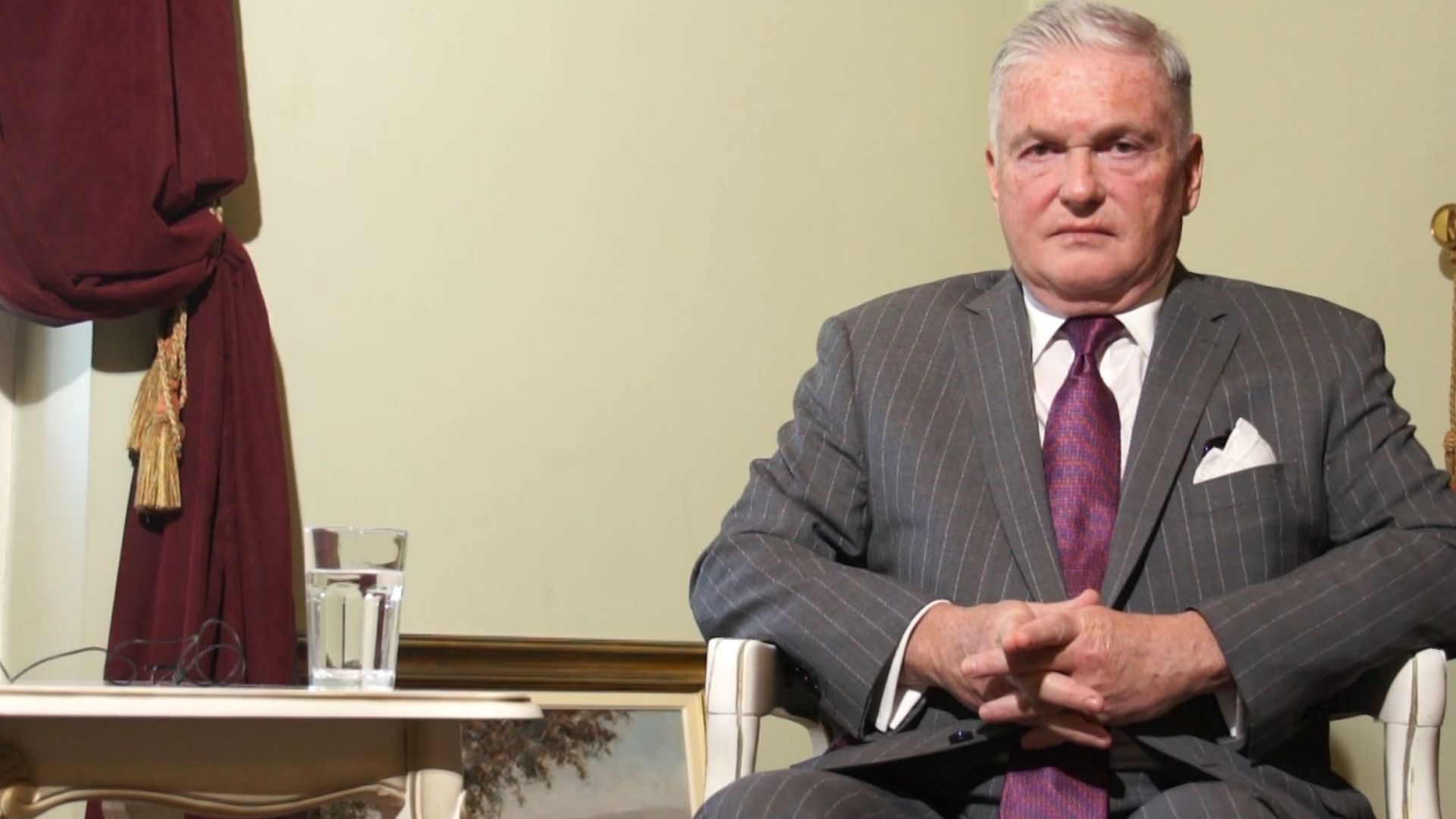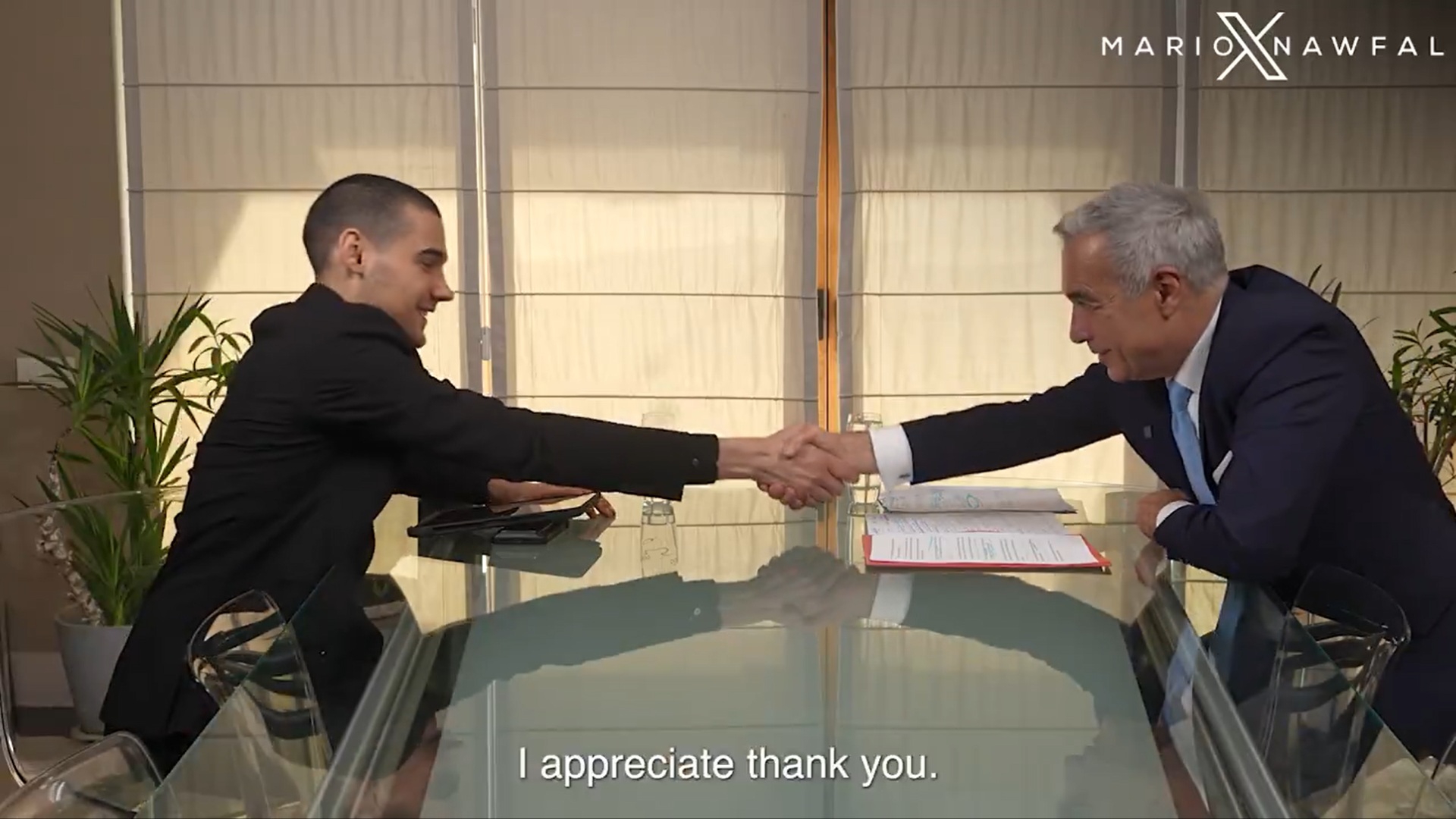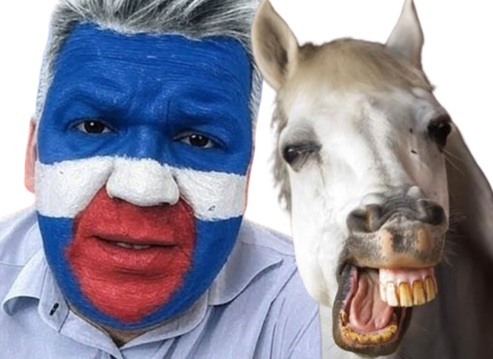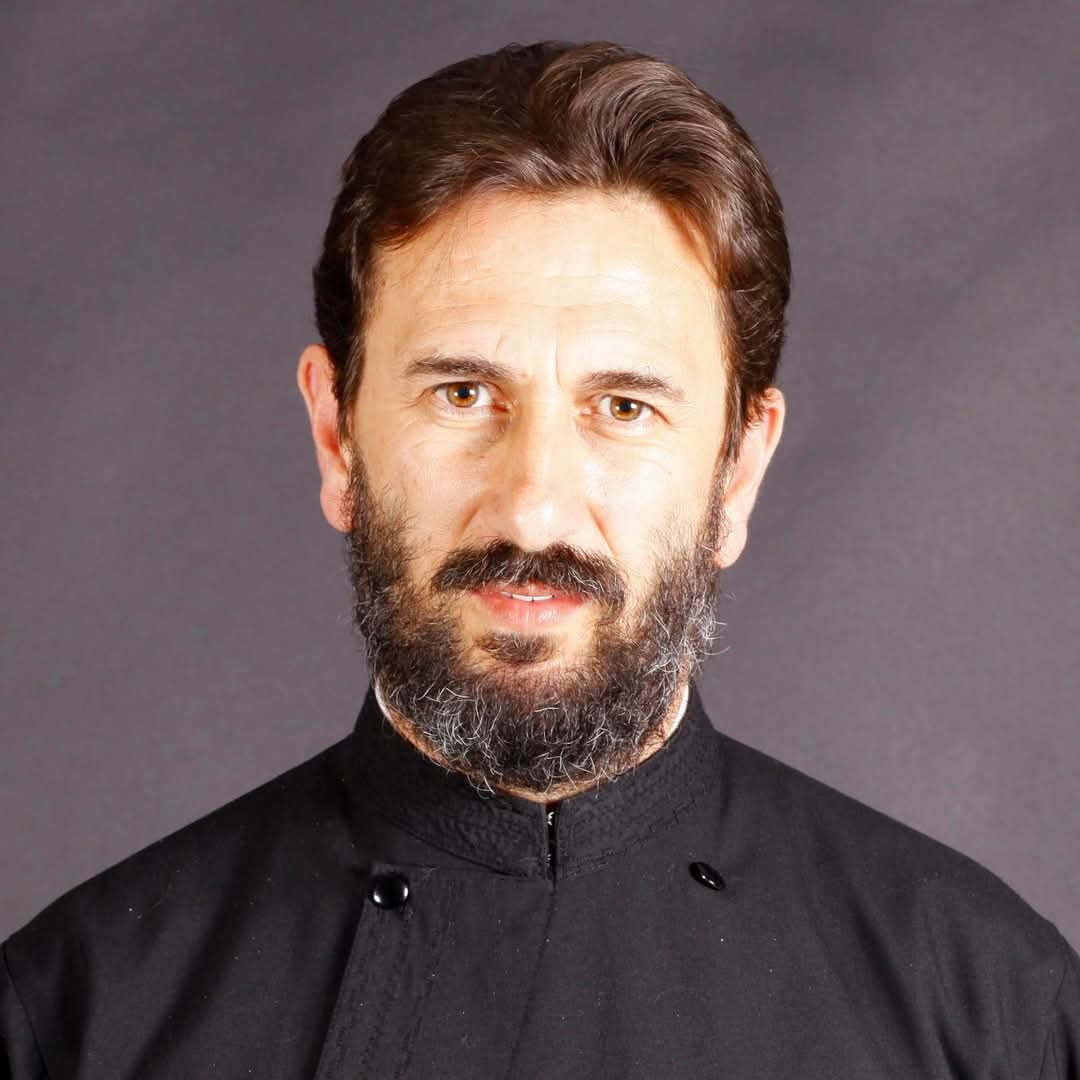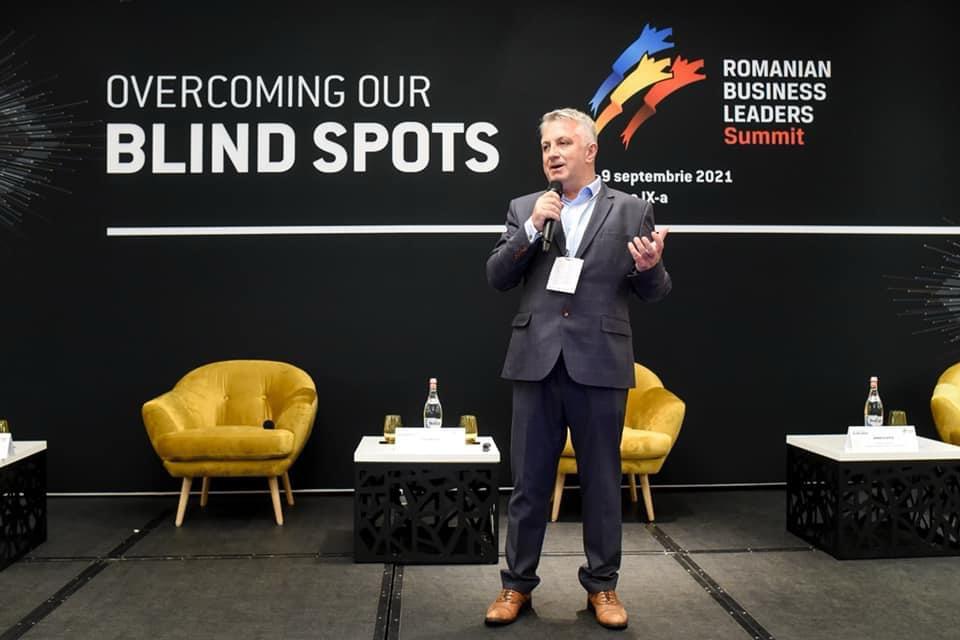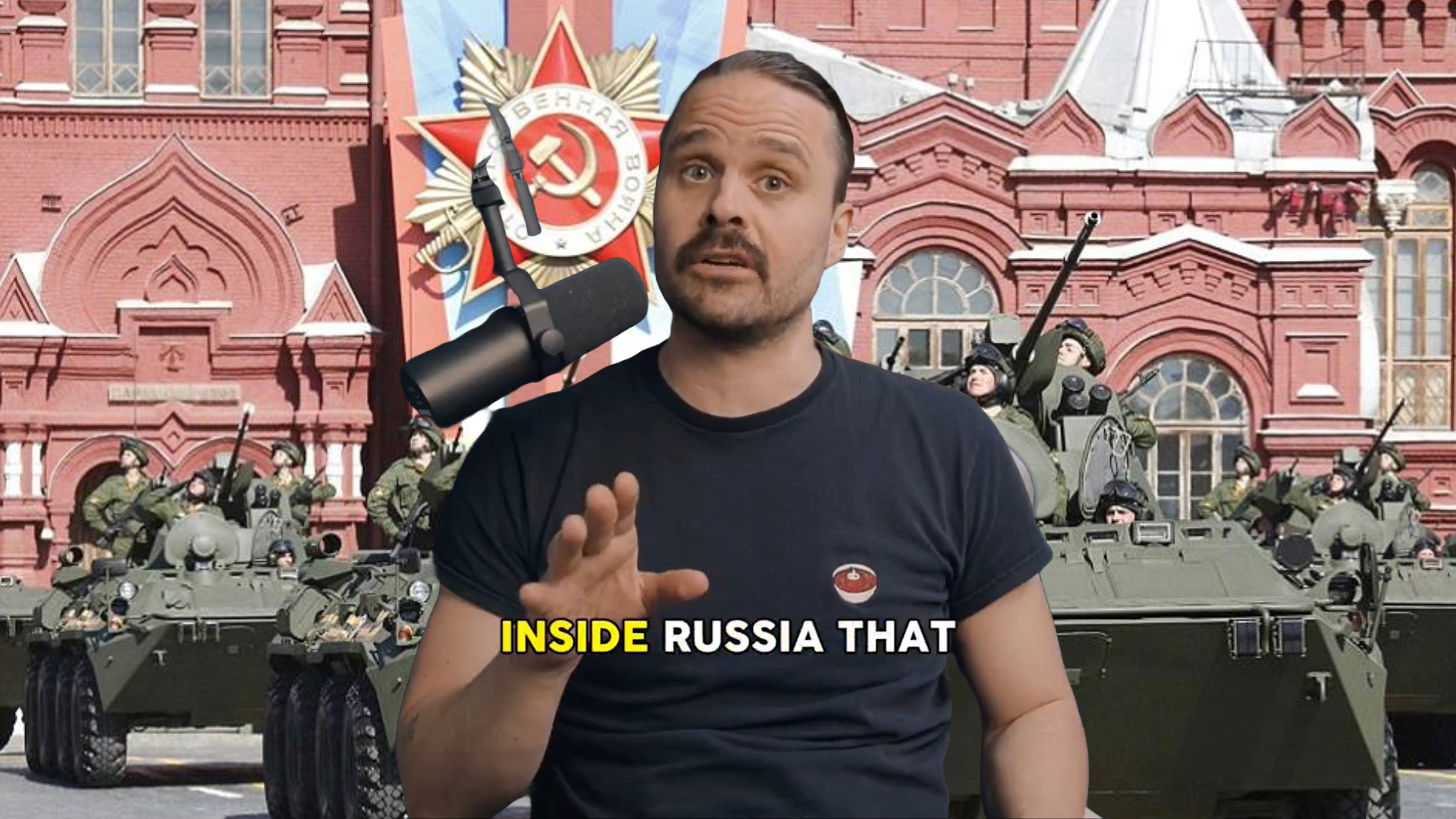Belgianul Luc Michel este liderul Partidului Comunitar Naţional European, o mişcare politică pe care unii teoreticieni politici o consideră de extremă-dreapta, cu sediul la Bruxelles. Partidul Comunitar Naţional European are o ideologie naţionalistă, antiliberală, antiamericană, militând pentru crearea unui stat unitar european din Rusia până la coastele Oceanului Atlantic. Evident, Luc Michel se numără și el printre prietenii de nădejde ai lui Vladimir Putin din sânul Uniunii Europene. Într-un interviu acordat agenției Sputnik (!), Luc Michel a găsit de cuviință să atace puțin țara noastră. “România se transformă, prin participarea la sistemul NATO antirachetă, într-o platformă de agresiune împotriva Rusiei.
Polonia, ţările baltice şi Bulgaria urmează aceeaşi strategie a Alianţei Nord-Atlantice”, afirmă Luc Michel, potrivitMediafax.
De asemenea, pe site-ul său personal, Luc Michel își continuă delirul, vorbind despre “nostalgia după România Mare și fascistă din perioada 1918-1944”, precum și despre “dorința revanșardă a românilor de a anexa Moldova, precum în 1941”. El și-a continuat elucubrațiile, precum Corneliu Vadim Tudor în zilele sale de glorie, pretinzând că “populația ortodoxă din România îi consideră pe ruși ca pe niște veri și este nemulțumită de curentul anti-rusesc promovat de media. Rusofobia oligarhiei atlantiste nu este împărtășită și de poporul român”.
Generalul american Philip Breedlove, comandantul forţelor NATO din Europa, afirma recent că Rusia a exercitat “presiuni mari” asupra României şi Poloniei din cauza sistemului antirachetă NATO, avertizând că Moscova intenţionează să continue această atitudine cu toate ţările participante la scutul antibalistic. La sfârşitul lunii martie, ambasadorul rus în Danemarca, Mihail Vanin, declara că Rusia va considera ţinte legitime toate ţările care vor găzdui instalaţii antibalistice ale Alianţei Nord-Atlantice.
Asta cu toate că Statele Unite şi NATO au explicat de mai multe ori că elementele antirachetă din Europa nu sunt îndreptate împotriva Rusiei, având rolul de a contracara ameninţări ale țărilor care nu se conformează reglementărilor internaţionale, precum Iranul.
Despre Luc Michel, via Anton Shekhovtsov:
The main organisation which invited right-wing and left-wing extremists to monitor the Crimean „referendum” is the Eurasian Observatory For Democracy & Elections (EODE). It is headed by Luc Michel (1958) and Jean-Pierre Vandersmissen (???). Both are followers of the major Belgian collaborationist and neo-Nazi Jean-François Thiriart and members of the extreme right Parti Communautaire National-Européen (PCN-NCP).
Jean-Pierre Vandersmissen and Fabrice Beaur (PCN-NCP) in the break-away „state” of TransnistriaThe list of the „monitors” invited by the EONE has not been published in full, but – thanks to various sources – the following observers of the Crimean „referendum” have been identified.
Austria:
Johannes Hübner (1956), member of the radical right-wing populist Freedom Party of Austria (FPÖ).
Johann Gudenus (1976), member of the radical right-wing populist FPÖ.
Johann Stadler (1961), former member of the FPÖ, current member of the radical right-wing populist Alliance for the Future of Austria (BZÖ).
Belgium:
Frank Creyelman (1961), former member of the extreme right Vlaams Blok, current member of the extreme right Vlaams Belang.
Luc Michel (1958), former member of the neo-Nazi Fédération d’action nationale et européenne (FANE), current member of the extreme right Parti Communautaire National-Européen (PCN-NCP).
Jan Penris (1964), member of the extreme right Vlaams Belang.
Christian Verougstraete (1950), member of the extreme right Vlaams Belang, member of the pan-European radical right-wing Alliance of European National Movements (AENM).
Bulgaria:
Pavel Chernev (1969), member of the extreme right Ataka party.
Kiril Kolev (1990), member the extreme right Ataka party.
Finland:
Erkki Johan Bäckman (1971), neo-Stalinist who does not recognise Estonia and Latvia as states. Banned from teaching at the University of Helsinki for distorting the history of the Baltic states.
France:
Aymeric Chauprade (1969), member of the radical right-wing populist National Front, adviser on international issues.
Germany:
Hikmat Al-Sabty (1954), Iraq-born member of the left-wing Die Linke. Known for anti-Israel activities.
Greece:
Charalampos Angourakis (1951), member of the neo-Stalinist, eurosceptic Communist Party of Greece (KKE).
Hungary:
Béla Kovács (1960), member of extreme right Jobbik, treasurer of the AENM.
Italy:
Fabrizio Bertot (1967), member of mafia boss Silvio Berlusconi’s right-wing Forza Italia.
Latvia:
Miroslavs Mitrofanovs (1966), co-chair of the pro-Russian party For Human Rights in United Latvia.
Tatjana Ždanoka (1950), former member of the Communist Party of Latvia, former member of the Interfront that opposed Latvia’s independence from the Soviet Union, current member of the pro-Russian party For Human Rights in United Latvia.
Poland:
Mateusz Piskorski (1977), member of the radical right-wing Self-Defence of the Republic of Poland.
Serbia:
Milenko Baborac (1966), member of the far right, ultra-Orthodox Dveri Movement.
Nenad Popović (1966), vice-president of the right-wing eurosceptic Democratic Party of Serbia, president of the honorary council of the Russian-Serbian Friendship Society.
Zoran Radojicic (???), member of the far right, ultra-Orthodox Dveri Movement.
Spain:
Enrique Ravello (1968), former member of the neo-Nazi CEDADE, former member of the extreme right, neo-pagan Terre et Peuple organisation, current member of the extreme right Plataforma per Catalunya.
Russia:
Oleg Denisenko (1962), member of the neo-Stalinist, national-bolshevik Communist Party of the Russian Federation.
USA:
Srđa Trifković (1954), Serbia-born anti-Semitic and Islamophobic writer. Known as an advocate of Slobodan Milošević’s regime.
sursa: PAGINA DE EUROPA






